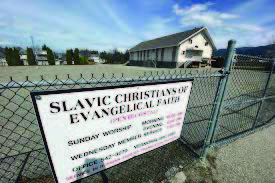
In a reverse mission strategy, Russian and other Slavic evangelical churches are growing in the U.S. as they reach beyond their immigrant base and seek to bring revival to other Americans, writes Adam Morris in Charisma magazine (April). Across the country, “pockets of Slavic Christians are building churches and spreading the gospel from their new home base. Most of them are Pentecostal or Baptist. The highest concentrations of Russian-speaking believers are in Jacksonville, Florida; Sacramento, California; Seattle; Boston; Philadelphia; St. Louis; and Dallas.” Morris writes that the enthusiasm and seriousness of these Slavic evangelicals have inspired their American counterparts, who have faced discouragement given the effects of Covid and the aftermath of the 2020 elections, especially as they have found growth through conversions rather than transferring believers from one church to another. One church leader from Belarus at Philadelphia’s 800-strong Word of Life Church says that “Slavic churches can pray for hours without music and a cozy atmosphere,” and that they focus on prayer and action.

Source: Vernon Morning Star.
The Slavic churches are undergoing a succession of leadership as the older leaders who experienced communism are retiring. Most of the churches planted in the U.S. by Slavic evangelicals in the 1980s and 1990s are undergoing this transition, and the process has been marked by tension and conflict. But the younger generation that was born in the U.S. tends to combine the fervor of the older generation, with its emphasis on miracles and deliverance from demons, with its own experiences of the spirituality and faith of the American church, Morris writes. Young leaders like Meesh Fomenko, Vlad Savchuk, and Andrey Shapoval emphasize both the freedom of American churches and the passion of the Slavic churches. Shapoval’s annual Kingdom Domain the conference serves as a hub for these young Slavic American leaders.
(Charisma, 600 Rhinehart Rd., Lake Mary, FL 32746)